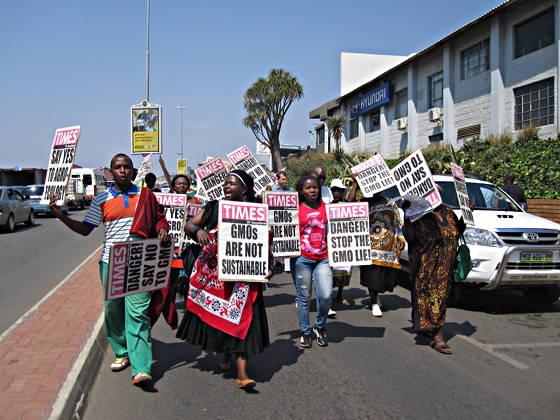Latest Resources

15 July 2020
Small scale farming organic African herbs and crops
Uncle Wiz is a shining example of a thriving small scale farming and food distribution business that not only farms without chemicals but also focuses on and promotes indigenous food crops. Owners Wisdom and Mpumi Edward live in south Johannesburg and farm on land in Vanderbijlpark. Not only do they grow many indigenous African crops […]

15 December 2017
Harmonised corporate seed laws in Africa: Where does this leave smallholder farmers?
The expansion of the corporate seed market, embedded in the green revolution agenda in sub-Saharan Africa is progressing very fast. This expansion is going hand in hand with regional policies and regulations – in a process also known as seed harmonisation – that will enable facilitate trade across national borders. This has been the case […]

18 October 2017
The GMO crisis in Swaziland
Swaziland is under enormous pressure to introduce genetically modified organisms (GMOs) into the country’s farming system. This pressure is coming not only from Monsanto but also from farmers and some sections of the public who have been fed a great deal of misinformation and hype by the pro-biotech machinery. The farmers, acting on incomplete and […]

27 September 2017
Seed sovereignty for Peasant Farmers in Malawi blocked by emerging national seed policy
The government of Malawi is poised to adopt a draconian National Seed Policy that blocks peasant farmers’ opportunities to secure and strengthen farmer-managed seed systems (FMSS), and which would undermine farmers’ rights and the International Treaty on Plant Genetic Resources for Food and Agriculture, to which Malawi is a Party. An ad hoc stakeholder policy […]

12 May 2015
Grabbing Africa’s seeds: USAID, EU and Gates Foundation back agribusiness seed takeover
The latest salvo in the battle over Africa’s seed systems has been fired, writes Stephen Greenberg, with the Gates Foundation and USAID playing puppet-masters to Africa’s governments – now meeting in Addis Ababa – as they drive forward corporation-friendly seed regulations that exclude and marginalize the small farmers whose seeds and labour feed the continent. […]
